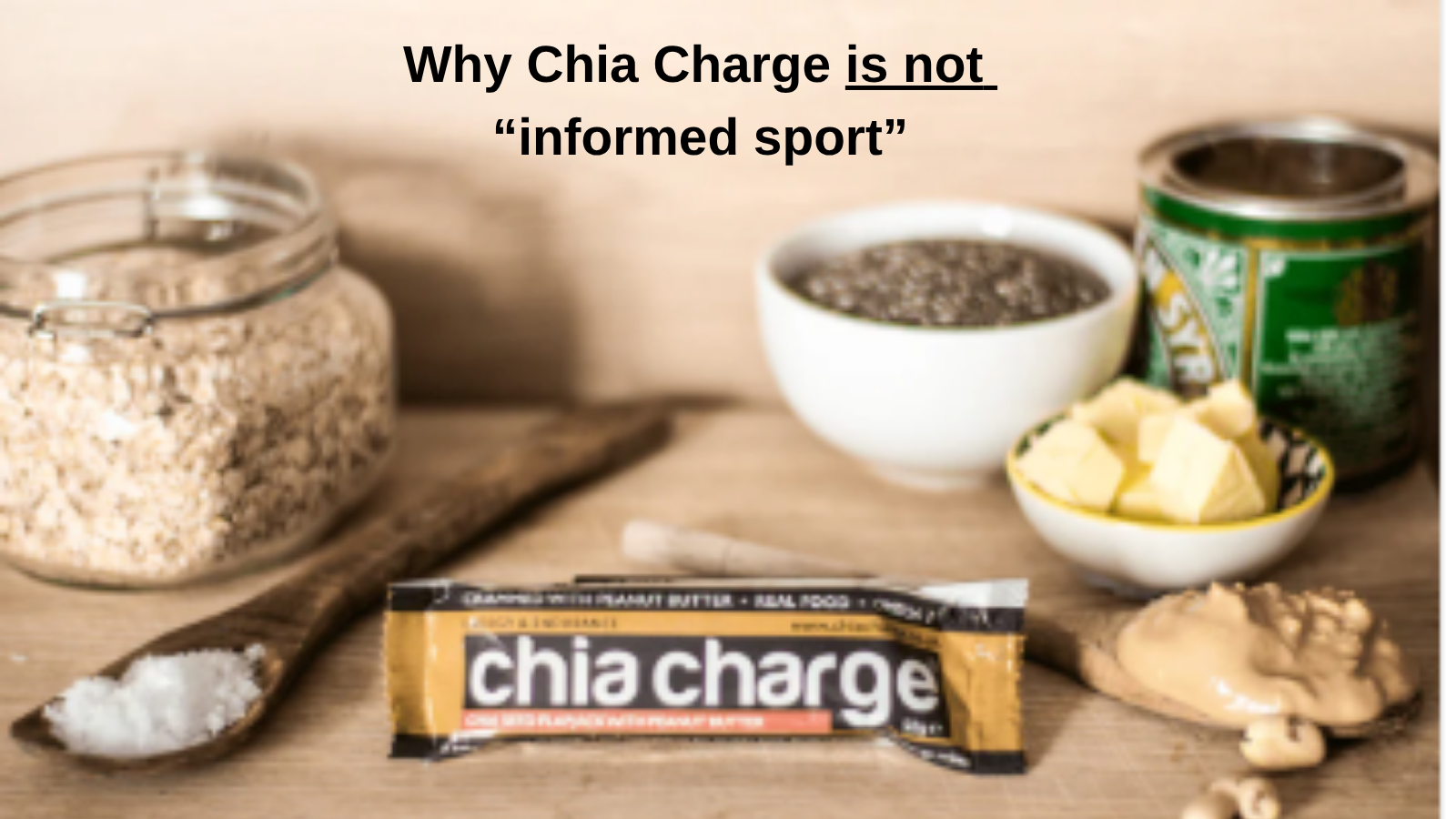Most Popular
A column with no settings can be used as a spacer
Link to your collections, sales and even external links
Add up to five columns
Most Popular
A column with no settings can be used as a spacer
Link to your collections, sales and even external links
Add up to five columns
Add description, images, menus and links to your mega menu
A column with no settings can be used as a spacer
Link to your collections, sales and even external links
Add up to five columns
Add description, images, menus and links to your mega menu
A column with no settings can be used as a spacer
Link to your collections, sales and even external links
Add up to five columns

Why Chia Charge Isn’t “Informed Sport” Tested + Why That’s a Good Thing
October 24, 2025 2 min read
Every now and then, someone asks us:
“Are your products Informed Sport tested?”
It’s a fair question — athletes need to know exactly what they’re putting in their bodies. But here’s the thing: Chia Charge doesn’t use Informed Sport testing because we don’t make sports supplements — we make food. Real food.
Let’s explain why that matters.
What “Informed Sport” Actually Is
Informed Sport is a certification and testing programme that screens sports supplements for contamination with banned substances.
It’s a great initiative for that world — one full of pre-workouts, amino acids, fat burners, and “performance enhancers.” These are made from concentrated, often synthetic ingredients, and they’re produced in factories that might also handle substances on the World Anti-Doping Agency (WADA) banned list.
So for athletes who use those types of products, testing makes sense.
🔍 According to Informed Sport, the scheme “tests sports supplements for over 250 prohibited substances” to protect athletes from accidental doping.
(Source: Informed Sport, 2024 – www.informed-sport.com)
Why That Doesn’t Apply to Real Food
Here’s what goes into a Chia Charge flapjack: oats, chia seeds, nuts, honey, sea salt, butter or cocoa, depending on the flavour.
That’s it.
There’s nothing synthetic, isolated, or chemically derived — no caffeine anhydrous, no “nitric oxide boosters,” no unpronounceable compounds. So there’s no realistic route for contamination by banned substances.
To put it simply:
Testing a Chia Charge bar for banned substances would be like testing a banana, slice of toast, or peanut butter sandwich.
What the Science Says
We’re not just winging it — the experts agree:
-
The World Anti-Doping Agency (WADA) states that “natural foods and their normal constituents are not prohibited.”
(WADA Prohibited List 2025) -
UK Anti-Doping (UKAD) highlights that the contamination risk comes from “supplements produced in facilities handling prohibited substances,” not from normal food manufacturing.
(UKAD: “Risks of Contamination in Sports Supplements,” 2023) -
And a review in the Journal of Sports Sciences (Burke LM et al., 2021) recommends that athletes “base their nutrition strategies on real, minimally processed foods to ensure digestibility and reduce risk of contamination.”
In short: the safest, simplest way to avoid banned substances is to stick to food you recognise.
Our Philosophy: Food You Can Trust
At Chia Charge, our whole approach has always been about real food for real performance.
When you eat our flapjacks, nut butters, or chia chews, you know exactly what’s in them — and your stomach does too.
You don’t need a lab certificate to know your oats are oats.
Informed Sport testing is a great tool for supplement companies. But if your products are made from ingredients you could find in your kitchen, that kind of certification doesn’t add anything meaningful.
The Bottom Line
We’ll leave the lab testing to the powders and pills.
We’ll keep making fuel you can trust, because it’s food — not chemistry.
So the next time someone asks whether Chia Charge is Informed Sport tested, the short answer is:
“No — because we make flapjacks, not formulas.”
References:
-
Informed Sport (2024). About Informed Sport. www.informed-sport.com
-
World Anti-Doping Agency (2025). Prohibited List.
-
UK Anti-Doping (2023). Risks of Contamination in Sports Supplements.
-
Burke, L. M., et al. (2021). Real Food and Sports Performance: Balancing Safety, Digestibility, and Effectiveness. Journal of Sports Sciences.
You've unlocked a free gift! Make your selections now.
Unavailable
£0.00

